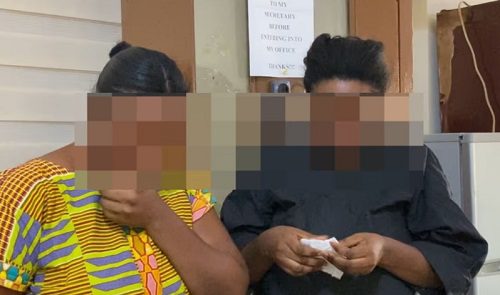Private legal practitioner Mr. Kofi Bekai asserts that the Children’s Act unequivocally protects children from all forms of abuse, including those perpetrated by their biological parents.
The lawyer emphasised that any individual who violates the rights of children must be prosecuted and held fully accountable for their crimes.
His comments follow the recent arrest of two nannies in East Legon, Accra, for allegedly administering sleep-inducing medication to their employer’s two-year-old twin sons.
The suspects, Francisca Boakye, a 30-year-old student nurse from Konongo in the Ashanti Region, and Harriet Ansah, 31, from Jasikan in the Oti Region, have reportedly confessed to other forms of physical and emotional abuse against the toddlers. They have also been accused of burning the children’s hands and subjecting them to derogatory insults, such as “chimpanzee,” over an eight-month period while employed by the family.
In response to the case, Mr. Bekai stated that the law explicitly opposes cruelty and abuse of children, and those who subject minors to such cruelty must face prosecution.
“The Children’s Act mandates that the interests of children should be paramount,” Mr. Bekai stated. “The Act is comprehensive, covering various issues including rights, parental duties, maintenance, adoption, and protection from exploitation. Children, irrespective of their location, are protected by law. Even biological parents can be arrested and prosecuted if they abuse or violate their children’s rights. Parents have a primary responsibility to provide the best care for their children, and when they delegate that care, they maintain a responsibility to ensure the children are well-catered for.”
He opined that if the allegations regarding the administration of sleep-inducing tablets are true, it constitutes cruelty. “Giving these toddlers the drug may indicate an intention to harm or even kill them. The court will meticulously examine all the facts presented before arriving at a conclusion,” he noted.
“They had a fiduciary responsibility to care for the toddlers; that was the service they were paid to provide, but they failed in this duty. The law is explicit: when you have children under your care, you have a responsibility to protect them, not to abuse them.”
He further added that in law, there is no defence of ignorance or acceptable motive for serious crimes. Allowing such justifications, he argued, would enable people to engage in serious offences like theft and robbery and subsequently attempt to rationalise their actions.
By: Rainbowradioonline.com/Ghana













